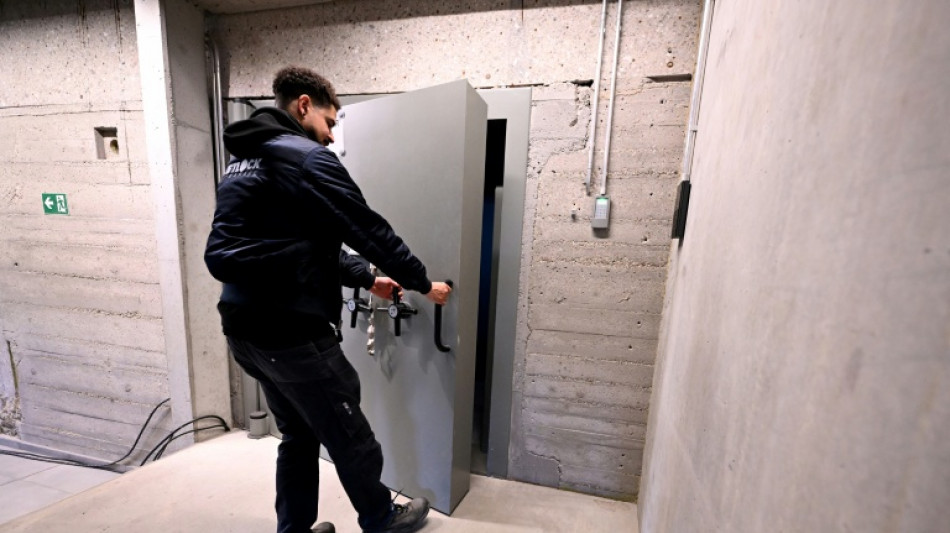
-
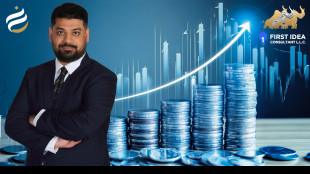 Scandic Trust Group strengthens sales network with First Idea Consultant
Scandic Trust Group strengthens sales network with First Idea Consultant
-
Tanzania charges more than 100 with treason over election protests
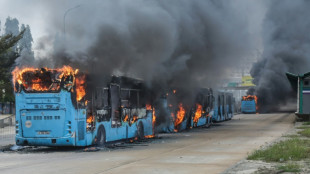
-
 Nexperia chip exports resuming: German auto supplier
Nexperia chip exports resuming: German auto supplier
-
Genge warns England to beware 'nasty' Fiji at Twickenham

-
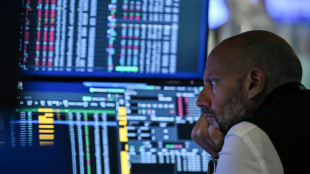 Stocks fall on renewed AI bubble fears
Stocks fall on renewed AI bubble fears
-
UK grandmother on Indonesia death row arrives back in London
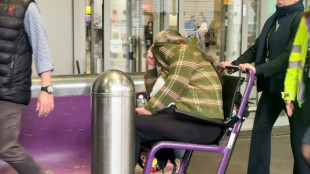
-
 Spanish star Rosalia reaches for divine in new album
Spanish star Rosalia reaches for divine in new album
-
Portugal's Mendes out injured as Neves returns for World Cup qualifiers

-
 Afghan-Pakistan peace talks push ahead after border clashes
Afghan-Pakistan peace talks push ahead after border clashes
-
Fleetwood in tie for lead at halfway stage in Abu Dhabi
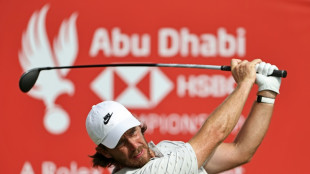
-
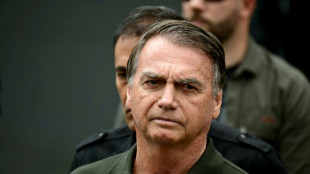 Brazil court starts hearing Bolsonaro appeal
Brazil court starts hearing Bolsonaro appeal
-
Serbia fast-tracks army HQ demolition for Trump family hotel
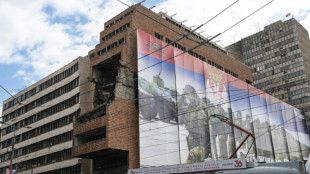
-
 Ireland captain Doris 'mentally stronger' after long break
Ireland captain Doris 'mentally stronger' after long break
-
MSF accuses powerful nations of weakening S.Africa's G20 health text
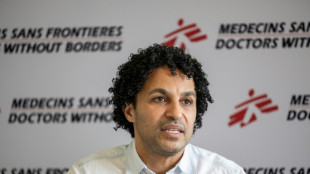
-
 Maresca defends Chelsea rotation policy after Rooney criticism
Maresca defends Chelsea rotation policy after Rooney criticism
-
Hundreds of flights cut across US in government paralysis
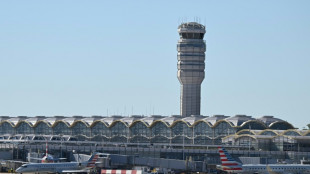
-
 Xhaka 'made me a better coach', says Arsenal boss Arteta
Xhaka 'made me a better coach', says Arsenal boss Arteta
-
Central Nigerian town rebuilds religious trust in shadow of Trump's threat
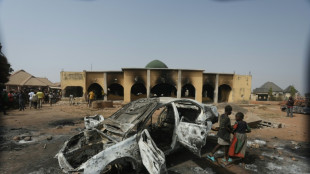
-
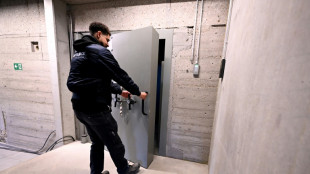 Inside Germany's rare earth treasure chest
Inside Germany's rare earth treasure chest
-
Former jihadist Syrian leader makes unprecedented White House visit
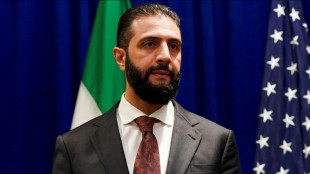
-
 Kagiyama takes NHK lead in Japan to kick-start Olympic season
Kagiyama takes NHK lead in Japan to kick-start Olympic season
-
Ikea profits drop on lower prices, tariff costs
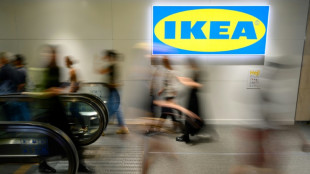
-
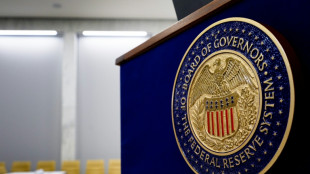 European, Asian stocks decline after Wall Street slide
European, Asian stocks decline after Wall Street slide
-
Tuchel brings 'immense' Bellingham and Foden back into England fold

-
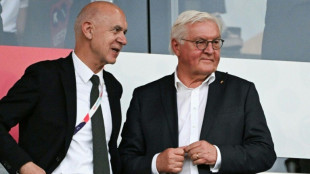 German FA extends with president Neuendorf until 2029
German FA extends with president Neuendorf until 2029
-
No end to Sudan fighting despite RSF paramilitaries backing truce plan
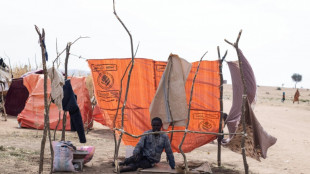
-
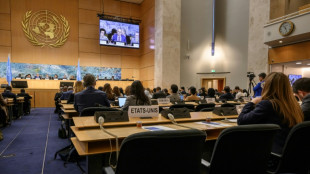 US officials, NGOs cry foul as Washington snubs UN rights review
US officials, NGOs cry foul as Washington snubs UN rights review
-
Injured teen medal hope Tabanelli risks missing home Winter Olympics

-
 Bellingham, Foden recalled to England squad for World Cup qualifiers
Bellingham, Foden recalled to England squad for World Cup qualifiers
-
Tanzania rights group condemns 'reprisal killings' of civilians
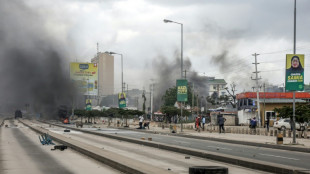
-
 Slot urges patience as Isak returns to training with Liverpool
Slot urges patience as Isak returns to training with Liverpool
-
Rees-Zammit set for Wales return with bench role against Argentina

-
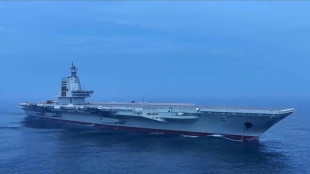 China's new aircraft carrier enters service in key move to modernise fleet
China's new aircraft carrier enters service in key move to modernise fleet
-
Operation Cloudburst: Dutch train for 'water bomb' floods
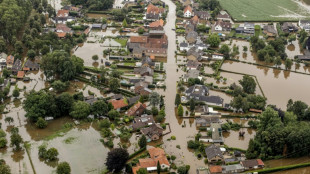
-
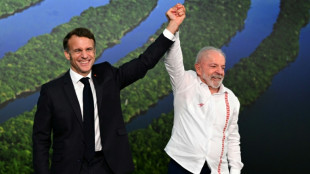 Leaders turn up the heat on fossil fuels at Amazon climate summit
Leaders turn up the heat on fossil fuels at Amazon climate summit
-
US travel woes mount as govt shutdown prompts flight cuts
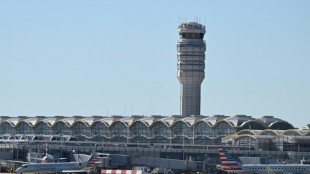
-
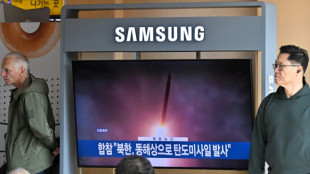 North Korea fires unidentified ballistic missile: Seoul military
North Korea fires unidentified ballistic missile: Seoul military
-
West Bank's ancient olive tree a 'symbol of Palestinian endurance'
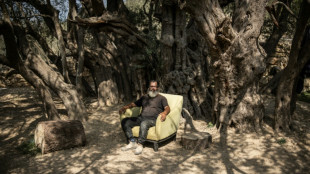
-
 Global tech tensions overshadow Web Summit's AI and robots
Global tech tensions overshadow Web Summit's AI and robots
-
Green shines as Suns thump Clippers 115-102

-
 Japan to screen #MeToo film months after Oscar nomination
Japan to screen #MeToo film months after Oscar nomination
-
Erasmus relishing 'brutal' France re-match on Paris return
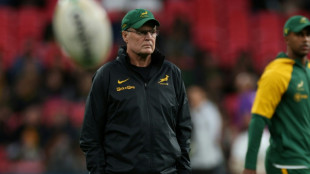
-
 Rejuvenated Vlahovic taking the reins for Juve ahead of Turin derby
Rejuvenated Vlahovic taking the reins for Juve ahead of Turin derby
-
'Well-oiled' Leipzig humming along in Bayern's slipstream

-
 Bangladesh cricket probes sexual harassment claims
Bangladesh cricket probes sexual harassment claims
-
NFL-best Broncos edge Raiders to win seventh in a row

-
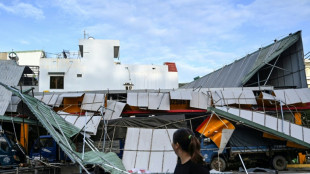 Deadly Typhoon Kalmaegi ravages Vietnam, Philippines
Deadly Typhoon Kalmaegi ravages Vietnam, Philippines
-
Three killed in new US strike on alleged drug boat, toll at 70
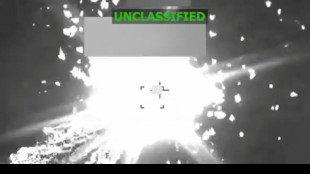
-
 Chinese microdrama creators turn to AI despite job loss concerns
Chinese microdrama creators turn to AI despite job loss concerns
-
Trump hails Central Asia's 'unbelievable potential' at summit
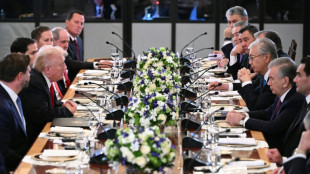

Inside Germany's rare earth treasure chest
In a World War II bunker east of Frankfurt, a steel door weighing over four tonnes protects Germany's largest reserve of rare earths, a treasure at the heart of rising geopolitical tensions.
The exact location is confidential and the site is under close video surveillance.
This is where Tradium, a German company specialised in trading rare earths, keeps thousands of barrels of the precious materials -- almost all from China, the world's biggest producer.
The materials in the bunker -- such as dysprosium, terbium and neodymium -- are essential for the manufacture of crucial modern technology including smartphones, electric cars and wind turbines.
Tradium, which employs fewer than 40 people, expects to reach a turnover of 300 million euros ($346 million) this year.
In the midst of the US-China trade war, Beijing imposed restrictions in April on rare earth exports, making them subject to licenses with stringent conditions.
China controls over 60 percent of rare earths mining and 92 percent of refined production worldwide, according to the International Energy Agency.
Germany's flagship automotive sector is especially affected by the restrictions because it is dependent on rare earth magnets.
China's dominance in the sector has left European industry highly exposed.
Matthias Rueth, president and founder of Tradium, said that "nervousness is rising" among his clients.
For one industrial customer, any further shortage of rare earths "could go as far as halting production", he said.
"Our Chinese suppliers are naturally not very happy either" and would prefer open trade, Rueth said, adding that the Chinese government's decisions had "tied their hands".
"The rest of the world is currently in a dilemma. There's a shortage of these raw materials, prices are exploding, and no one really knows how things will turn out."
- Restrictions remain -
China's dominance of the rare earths market goes back decades.
According to Rueth, at least since the 1990s Chinese governments have looked at the materials as an asset on a par with the Middle East's oil reserves.
Europe has never created a comparable mining industry, said Martin Erdmann from the Federal Institute for Geosciences and Natural Resources (BGR).
He said Europe had preferred to "import these materials at lower cost from countries with less stringent environmental regulations".
The United States, which was the sector's global leader until the 1990s, then "abandoned production for cost and environmental reasons, leaving China to dominate the market," Erdmann told AFP.
Although US President Donald Trump claimed that his agreement with Chinese counterpart Xi Jinping in late October meant the suspension of some of the restrictions related to rare earths, the reality is far less clear.
According to Erdmann, "April's restrictions remain" in place, with Beijing still requiring "mandatory licenses, which involve disclosing industrial secrets and proving that the material will not be used in defence industries".
Few European companies are able to accept these conditions.
- 'Already too late' -
About 15 years ago, Japan faced a similar rare earths crisis caused by difficulties with supply chains from China.
In response, it developed alternative suppliers, notably in Australia, and built strategic reserves.
For Europe, "it is crucial to learn the same lessons and invest massively," said Erdmann.
In 2024 the European Union adopted legislation to secure its supplies of 17 strategic raw materials.
The Critical Raw Materials Act sets a 2030 target for at least 10 percent of rare earths consumed in the EU to be extracted within the bloc, along with 40 percent of necessary processing and 25 percent of recycling.
However, meeting these targets will be complicated given that the rare earth market remains captive to "very low prices, probably deliberately maintained at this level" by Beijing, which aims to "prevent any profitable exploitation" outside China, said Erdmann.
Rueth said that "our modern life entirely depends on these materials" but that finding an alternative when they become scarce "is very difficult".
Looking at the conundrum now faced by Europe to catch up in the race for critical rare earths, he said he has come to the gloomy conclusion that "it's already too late".
P.Silva--AMWN